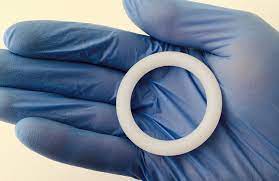The Dapivirine or vaginal ring, a tool meant to expand HIV prevention options for women is making it easy for women to negotiate for safer sex, Sexual and Reproductive Health Rights (SRHR) Advocates have said.
The ring is made of silicone and must be worn inside the vagina for a period of 28 days after which it should be replaced with a new ring.
The Medicines Control Authority of Zimbabwe (MCAZ) received the submission for review of the ring on March 5, 2021.
The ring has since been approved for use in Zimbabwe.
Speaking during an online cross border science media café involving Zimbabwe, Zambia, Uganda and Kenya, SRHR advocate, Chilufya Hampongo from Zambia said it is hard for women to negotiate for safer sex compared to their male counterparts.
“It’s a fact that HIV carries a face of a female, women are carrying a lot of burden and we expect to see a lot of research centred on women so as to help them get through what they are going through. Women face unequal gender norms that limit their agency and the voice of women and girls,” said Hampongo.
She said through her advocacy work, women are calling for options that are easy to use and convenient for them.
“We know it is very hard for women to negotiate for safer sex because the power struggle that exists even in homes for those that are married is something we can not even doubt, so the ring does not only speak to choose but also promotes body autonomy and integrity. Women want options that are easy to use and very convenient for them without asking their partners.”
“Women have hope that the ring could solve some of their challenges which they face, when we asked them about efficacy levels, some echoed that 50 percent efficacy is better than nothing at all because it is convenient and also the issue of adherence with oral prep has been an issue for women, so at this point we shouldn’t be downgrading one option over another because we will be doing a disservice to the people who we want to save,” she said.
She added that having many options for HIV treatment for women will give an opportunity for women to choose options that work for them.
“There are talks about the level of efficacy which is coming out now and then but the choice is not only for options that are 99 percent effective or drugs that can stay long enough in our bodies but options that women control is the answer to all these questions that we have been trying to solve because currently we have oral prep but we are still seeing a lot of young people getting infected and that again tells us that there is a problem, women don’t have a choice,” said Hampongo
Meanwhile, a manager for advocacy and community outreach for the International Partnership for Microbicides (IPM) the developer/manufacturer, Sinazo Pato said the ring is currently offered for free to women while the Government or donors procure it for US$12-US$13.
“The ring is the first long-acting HIV prevention product is women controlled, women can insert the ring on their own, in clinical trials they were taught, but follow-on rings they were able to insert on their own in their homes, it is discreet, partners cannot feel it, you can go about your business with the ring, if you feel it, it means it’s not inserted properly,” said Pato.
She added that it does not interfere with sexual activities and the menstrual cycle of the women.
One of the Reversing the Epidemic in Africa with Choices in HIV Prevention (REACH) study participants from Zimbabwe, (name withheld for ethical reasons) encouraged other young people to use the vaginal ring.
“I used the ring for one year and I agreed to participate in the study because I was at risk of getting HIV as you cannot trust your partner 100 percent, I didn’t feel any discomfort or any side effects and my partner was not aware of it,” she said.

